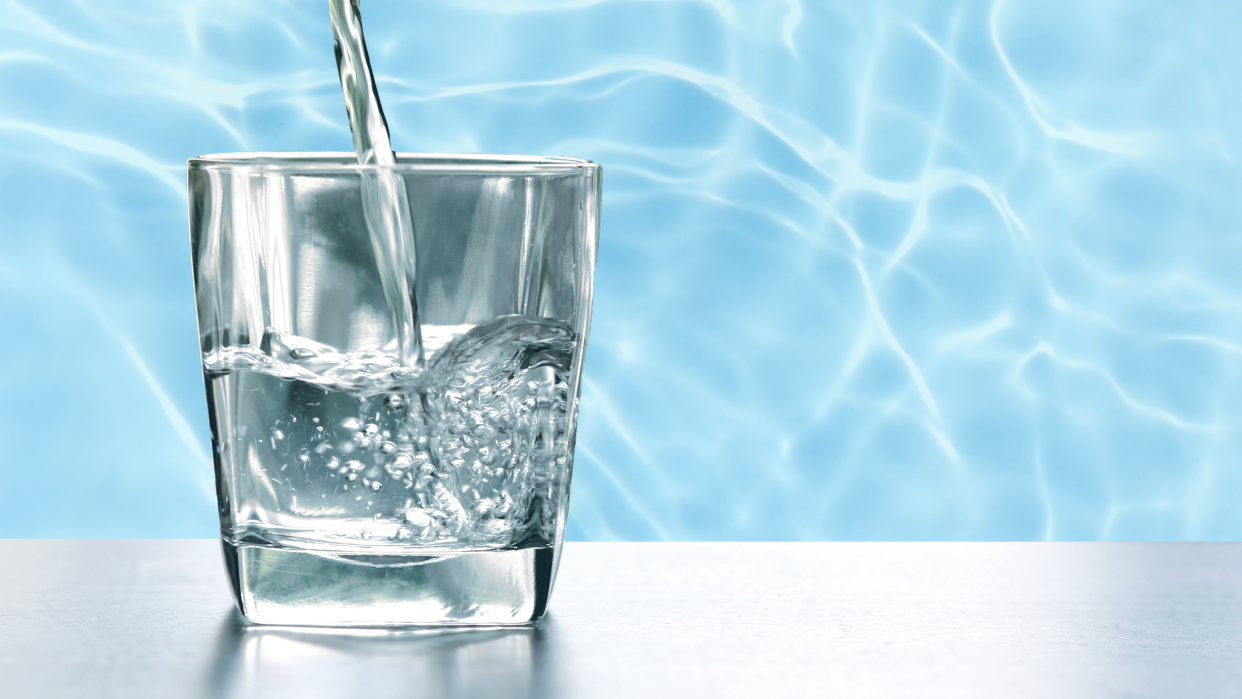Can dehydration cause high blood pressure? The link between hydration and blood pressure

The Centers for Disease Control and Prevention (CDC) is concerned that Americans aren't doing enough to manage high blood pressure.
"The higher your blood pressure levels, the more risk you have for other health problems, such as heart disease, heart attack and stroke," the agency cautions. Despite this warning, the CDC says people still aren't doing all they can to keep high blood pressure, also called hypertension, under control as nearly a million Americans continue to die every year as a result of heart disease and stroke.
Among the many other proven methods to manage blood pressure problems, improved hydration is high on the list.
Does water lower blood pressure quickly?
While drinking water doesn't instantly lower one's hypertension, it can make a difference. Because water makes up about 73% of the human heart, staying hydrated plays an important role in regulating blood pressure. What's more, dehydration has been shown to cause one's blood to have higher than normal levels of sodium – and salt raises blood pressure.
Plus, a 2019 study published in the Journal of the American Heart Association shows that drinking mineral-enriched water can also be helpful in lowering blood pressure.
Is vitamin water actually good for you? It's complicated, experts say.
Does drinking more water also raise blood pressure?
Maintaining one's blood pressure isn't all about keeping levels from being too high, however. "All our organs depend on good blood flow," says Shaline Rao, MD, a cardiologist at NYU Langone Hospital, Long Island. "Like Goldilocks and the three bears – our blood pressure should not be too high, not too low but just right."
That's because low blood pressure, known as hypotension, is a problem as well. "Blood pressure is related to blood volume," explains John Whyte, MD, the Chief Medical Officer of WebMD and author of "Take Control of Your Heart Disease Risk." If one is dehydrated, Whyte says, "that decreases blood volume which causes blood pressure to drop, and as blood pressure drops, your heart rate has to increase to get more blood to your organs."
What's more, because blood is made up of about 90% water, "if you do not have enough water, your blood volume isn't adequate at doing the job needed of feeding your body," says Rao. This can lead to, among other things, feeling dizzy or fainting.
The good news is that research shows that people who struggle with low blood pressure are able to increase it (and reduce instances of vertigo!) simply by drinking more water. "A drop in blood pressure can be managed by drinking appropriate amounts of water and following labels on blood pressure medications," says Malissa Wood, MD, the associate chief of cardiology for diversity and health equity at Massachusetts General Hospital.
How much water should you drink if you have high blood pressure?
So how much water should you be drinking? The CDC warns that many people aren't getting enough water and has several suggestions to increase one's intake of water. These include having a cup or bottle filled up and always handy, choosing water over sugary drinks and soda and washing down food with water at mealtime.
And because you lose more water when you perspire, it's essential to be mindful of hydration whenever temperature rise. "As we enter the warmer months, it is especially important for people with low blood pressure to limit alcohol and caffeine consumption and to drink more water," advises M. Scott Dawson, MD, a cardiologist at Inspira Medical Group Cardiology.
"A reasonable amount of fluid for those with healthy hearts and kidneys can be 2.5 to 3.5 liters a day," suggests Rao, "But this is customized to the individual based on risks. Discuss with your provider for the best parameters for you to follow."
This article originally appeared on USA TODAY: Can dehydration cause high blood pressure? What you need to know
